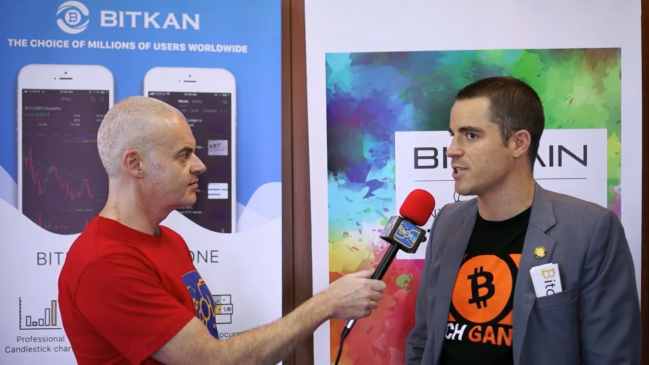Bitcoin Adoption ‘Lost Years and Years’ Due to Scaling Debate: Roger Ver
October 3, 2018 by Jon Southurst
“Get the economics (of bitcoin) wrong and you get everything wrong,” said entrepreneur Roger Ver in his presentation last week at the World Digital Mining Summit in Georgia. He describes to Bitsonline in this interview how community infighting and censorship of information online has set back bitcoin adoption by years, and sent billions in value to other cryptocurrencies.
Also see: Railroaded: Five Years Since Ross Ulbricht’s Imprisonment
Subscribe to the Bitsonline YouTube channel for great videos featuring industry insiders & experts
Ver: Bitcoin Has Even ‘Seen Reverse Adoption’
Bitcoin (BTC) as it currently exists is akin to a centrally-planned economy, says Ver. Available space in a transaction block is a commodity produced by miners, yet BTC developers have made it deliberately scarce by limiting its size (and increasing the fees required to transact at busy times). In economics that’s called a “production quota” which always leads to inefficient outcomes, he adds.
Rather, transactions fees should be set by the market. And those same market forces have driven people away from BTC to the point where many businesses that once accepted it no longer do — “reverse adoption”, as he calls it. Bitcoin has also lost ground in previously fertile markets, like New Hampshire. That doesn’t guarantee that Bitcoin Cash (BCH) will succeed either, Ver cautions, and he himself “owns a basket of cryptos”.
Watch the full interview above to find out more.
Why Censorship and Bad Actors Matter
Ver’s arguments here aren’t new but they’re still relevant. Many have wondered what the market cap of BTC today could be had the scaling debate been settled more amicably.
He also repeats his criticisms of censorship in the community that limited access to pro-big block arguments, He also describes why that censorship matters — even though several pro-big block and BCH communities have appeared in parallel.
“Network effects are powerful,” he says, musing on whether the oldest Bitcoin communities could even have been deliberately disrupted. He also gives his opinions on the presence of bad actors and whether or not it’s inevitable that groups will attempt to gain control of new technologies, especially those with the potential to create an entirely new economy.
Do you agree with Roger Ver’s points of view? Why or why not? Feel free to share your thoughts in the comments.
Images and video via Bitsonline, Jon Southurst




